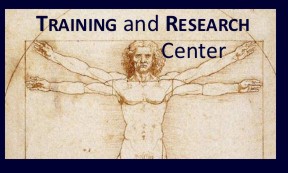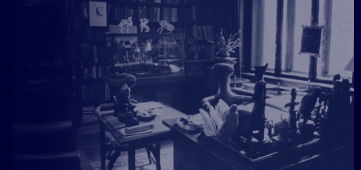The
transition from infancy to puberty, when cultural relations
between men and women are defined, is marked by the repression,
via education, of everything that culture does not accept. This
transition is initiated by an effraction of the developing psyche
by what has remained unaddressable, and therefore outside language.
This effraction manifests itself in a subjective experience that
radically differentiates the relationship of young boys and girls
to their mother. It's the discovery, unaddressable as such, that
the mother is also a woman. The consequences of this discovery initiate
puberty earlier for the girl than for the boy, and will institute
fundamental differences for both in the shaping of psychic structures.
-
Puberty, the cultural montage of the sexual -
The
collective uses language to organize a collective consciousness
that makes the social bond possible. At the root of this challenge,
there is a montage of the sexual that produces
women and men according to the norms and rules of culture. This
montage, in which culture organizes a control of the out-of-language
in the individual, censors in both men and women the feminine, which,
as a dimension of the human grappling with the unaddressable in
subjective consciousness, precedes the very existence of culture.
The consequences of this montage of the sexual are amplified in
the context of mondialisation.
The rebellion of the so-called pervert against this cultural montage
will later mark the function of substituting sexuality for desire,
whose unaddressable object remains unknown, whereas the neurotic's
quest to conform to norms already relies on “making do”
with the sexual in order to gain access to the unknown. The young
psychotic refuses that which appears to him, in this montage he
has never entered, to be the source of violence against women, even
feminicide. A subjective consciousness thus emerges for the young
pubescent, in opposition or contradiction to the individual consciousness
developed by education in conformity with the norms of collective
consciousness.
-
The rupture of adolescence -
This
conflict, at once social, in the context of mondialisation, and
very intimate, in the subjective consciousness of the young pubescent,
is the backdrop to the experience that will mark the two periods
of the rupture of adolescence.
In
a first moment, between the ages of 15 and 20, in the most intimate
part of a young person's consciousness, the unaddressable takes
the form of an experience that breaks with the logic of puberty
and initiates adolescence in a profound silence. It's the experience
of a dimension of one's being involving sensations, feelings and
intimate representations that defy collective consciousness by going
beyond cultural requirements. What the boy or girl experiences through
this dimension of their being seems more important to them than
their person. They then truly realize the dimension of subjective
consciousness within them, with what this imposes as ethics beyond
what the morality implemented by the collective consciousness upholds
as right or wrong. Beyond culture and civilization, it's the human
that is at stake. This is when the first symptoms of psychosis appear.
-
A new dimension of being : the Human -
Finally,
between 20 and 25, when the being’s maturity and preparation
for participation in the community is to be accomplished, this intimate
experience is strengthened and deepened with the discovery that
this new dimension of being transcends the values
and beliefs of civilization that accredit cultural norms. This dimension
of being is aimed at the Human insofar as it preceded
and created culture and civilization, and will survive them as well.
This is when the adolescent is confronted with the three great obstacles
created by culture and civilization that put humanity at risk: money,
guns and feminicide.
This
deepening of the constitutive experience of adolescence opens subjective
awareness to that which is unfit to be said within the framework
of collective consciousness, creating that dimension of the sublime
where the being has to deal directly with the incalculable and the
unaddressable. The adolescent becomes aware that what he or she
is grappling with is more important than their life itself. The
first symptoms of psychosis, which appeared in the first phase of
adolescence, now take on their full meaning, putting the young person's
life at risk.











